The recent news
May 28, 2025
Publications

🌐follow Marie-Anne Frison-Roche on LinkedIn
🌐subscribe to the Newsletter MAFR Regulation, Compliance, Law
🌐subscribe to the Video Newsletter MAFR Surplomb
____
► Full Reference: M.A. Frison-Roche, "100 fois remettre la Compliance sur le métier de la Stratégie" (100 times put Compliance back on the Strategy agenda), in Lettre d'information Compliance. Groupe SNCF, 100ième issue, 28 may 2025.
____
📝read the article (in French)
____
► English presentation of this article: This anniversary article sets out what Compliance is and should be in a large group. It expresses it in 4 points:
1. Actively master regulations by understanding their spirit
2. Improving risk detection without taking away the entrepreneurial spirit
3. Promoting convergence and managing conflict
4. Strengthen the company's identity by focusing on its strategic ambitions
________
May 22, 2025
Editorial responsibilities : Direction of the collection "Cours-Série Droit privé", Editions Dalloz (33)
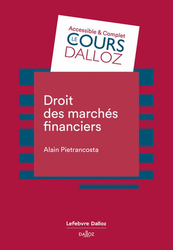
► Référence complète : A. Pietrancosta Droit des marchés financiers, Dalloz, coll. "Cours Dalloz-Série Droit privé", 1ière éd., 2025, 500 p.
____
► Sommaire de l'ouvrage :
Introduction
Chapitre préliminaire : Présentation de l'objet de la matière
Partie 1 : Physionomie générale du droit des marchés financiers
Titre 1 : De l'esprit du droit des marchés financiers
Chapitre 1 : Du couple déréglementation – régulation
Chapitre 2 : Des objectifs assignés au droit des marchés financiers
Section 1 : Le bon fonctionnement technique des marchés
Section 2 : La transparence
Section 3 : La protection des investisseurs
Titre 2 : Des sources du droit des marchés financiers
Chapitre 1 : Approche générale
Chapitre 2 : Descriptif du cadre normatif positif$
Section 1 : Les sources internationales
Section 2 : Les sources européennes
Section 3 : Les sources françaises
Partie 2 : Aspects techniques du droit des marchés financiers
Titre 1 : Composantes infrastructurelles
Chapitre 1 : Approche juridique des marchés de titres financiers
Section 1 : Définition et typologies des titres financiers
Section 2 : Organisation des marchés de titres financiers
Chapitre 2 : Le régulateur public : l'Autorité des marchés financiers
Section 1 : Nature juridique de l'AMF
Section 2 : Missions générales de l'AMF
Section 3 : Organisations de l'AMF
Section 4 : Pouvoirs
Titre 2 : La transparence du marché
Chapitre 1 : L'information périodique
Section 1 : L'information comptable
Section 2 : L'information financière
Section 3 : L'information politique
Section 4 : L'information sociale et environnementale
Chapitre 2 : L'information occasionnelle : le prospectus
Chapitre 3 : L'information permanente ou continue
Section 1 : La publication par les émetteurs côtés des informations privilégiées les concernant directive
Section 2 : Les déclarations par les investisseurs des franchissements de seuils et des pactes d'actionnaire
Titre 3 : La protection substantielle des investisseurs
Chapitre 1 : La gouvernance des sociétés côtés
Sections 1 : Des règles spécialement applicables aux sociétés côtées
Section 2 : Des règles aux sources plurielles
Chapitre 2 : Les opérations d'offres publiques d'acquisition et de retrait
Section 1 : Les OPA
Section 2 : Les offres publiques de retrait et retrait obligatoire
Chapitre 3 : La prohibition des abus de marché
Section 1 : Les règles européennes communes
Section 2 : La prohibition des opérations d'initié
Section 3 : La prohibition des manipulations de marché
____
📚Consulter l'ensemble de la collection dans laquelle l'ouvrage est publié
________
May 15, 2025
Publications
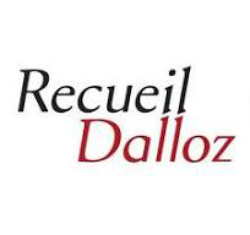
► Full Reference : M.A. Frison-Roche, Le "Grand Arrêt" de la Cour d'appel de Paris du 7 mai 2025, Dalloz et al. c/Forseti, D.2025, p.
____
📝reread the article (in French)
____
► Ench presentation of this article: The first part of the article describes the Paris Court of Appeal's ruling against the company that created a Legaltech platform under the trade name 'Doctrine', which offers a large number of court rulings, particularly from lower courts. Sued for unfair competition by a group of publishers offering a similar service, they were not convicted at first instance, but were convicted by the Court of Appeal because it appeared that they had fraudulently obtained thousands of judgments, which, under Civil Law, constitutes unfair competition to the detriment of the plaintiffs.
The second part of the article draws 6 lessons from this. The power of general law. On the benefits that the perpetrator has derived from the slowness of justice. On the importance of Open Data. On the fact that the law is not mastered by accumulating data but by putting it into perspective through the thinking of authors and publishers. On the indifference for this of the financiers who built and resold the "Doctrine" website. On the very nature of a 'Grand Arrêt', such as this one.
________
May 6, 2025
Interviews

🌐suivre Marie-Anne Frison-Roche sur LinkedIn
🌐s'abonner à la Newsletter MAFR Regulation, Compliance, Law
🌐s'abonner à la Newsletter en vidéo MAFR Surplomb
____
► Référence complète : M.-A. Frison-Roche et L. d'Avout, «La citoyenneté européenne donne-t-elle droit à un état civil « sur mesure » » », interview réalisée par Olivia Dufour pour Actu-juridique, Lextenso, 6 mai 2025
___
► lire l'entretien : 💬 Lire l'interview
🌐lire la présentation de l'entretien sur LinkedIn
____
► présentation de l'entretien par Actu-Juridique : La citoyenneté européenne est-elle sur le point d'engendrer un droit à la reconnaissance dans tous les Etats membres des droits acquis dans l'un d'entre eux, s'agissant de l'état des personnes et du droit de la famille ?
Certaines décisions récentes de la Cour de justice de l'Union européenne (CJUE) pourraient inciter à le penser.
Entretien croisé à ce propos entre MAFR et Louis d'Avout.
Q. De
Résumé de la réponse de MAFR : El
Q. De quels outils disposent-ils ?
Résumé de la réponse MAFR : l'
Q. Les
Résumé de la réponse MAFR : Le
.
_________

May 4, 2025
Publications

🌐follow Marie-Anne Frison-Roche on LinkedIn
🌐subscribe to the Newsletter MAFR Regulation, Compliance, Law
🌐subscribe to the Video Newsletter MAFR Overhang
🌐subscribe to the Newsletter MaFR Droit & Art
____
 ► Full Reference: M.-A. Frison-Roche, Compliance law as a Royal Road for regulating the Digital Space, Working Paper, May 2025
► Full Reference: M.-A. Frison-Roche, Compliance law as a Royal Road for regulating the Digital Space, Working Paper, May 2025
____
📝 This Working Paper is the English basis for an article written in French "Le Droit de la compliance, voie royale pour réguler l'espace numérique", in 📕
____
► Summary of this Working Paper: In order to describe the role of Compliance Law in regulating the digital space and to conclude that this new branch of Law is the 'royal road' to this end, this study proceeds in 6 stages. Firstly, at first sight and conceptually, there is a gap between the political idea of Regulating and the ideas (freedom and technology as 'law') on which the digital space has been built and is unfolding. Secondly, in practice, there is such a huge gap between the ordinary methods of Regulatory Law, which are backed by a State, and the organisation of the Digital Space by these economic operators, that are both American and global. Thirdly, the political claim to civilise the Digital Space remains and is growing, relying on the very strength of the entities capable of realising this ambition, these entities being the crucial digital operators themselves, seized as Ex Ante. Fourthly, it corresponds to the conception and practice of a new branch of Law, Compliance Law, which should not be confused with "conformity" and which is normatively anchored in its "Monumental Goals". Fifthly, Compliance Law internalises Monumental Goals in the digital operators which disseminate them through structures and behaviours in the digital space. Sixthly, through the interweaving of legislation, court rulings and corporate behaviour, the Monumental Goals are given concrete expression, willingly or by force, in ways that can civilise the digital space without undermining the primacy of freedom.
____
🔓read the Working Paper below⤵️
April 18, 2025
Conferences
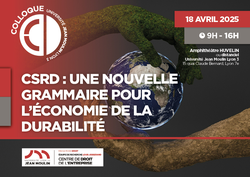
🌐suivre Marie-Anne Frison-Roche sur LinkedIn
🌐s'abonner à la Newsletter MAFR Regulation, Compliance, Law
🌐s'abonner à la Newsletter en vidéo MAFR Surplomb
🌐s'abonner à la Newsletter MaFR Droit & Art
____
► Référence complète : M.-A. Frison-Roche, "Appréhender la CSRD à travers sa ratio legis", synthèse de CSRD : une nouvelle grammaire pour l'économie de la durabilité, colloque organisé par le Centre de recherches Louis Josserand sous la direction de Luc-Marie Augagneur, Faculté de Droit, Université Jean Moulin - Lyon 3, 8 avril 2025,
____
Cette conférence constitue l'intervention de synthèse du colloque. C'est pourquoi elle a été construite à partir d'une méthode qui lui est propre à savoir la recherche et le respect de ce qui a justifié l'adoption de la CSRD, tout en s'appuyant sur chacun des propos qui ont été présentés lors de cette journée pour en rendre compte et les mettre en perspective de cette idée.
____
🧮consulter le programme complet de cette manifestation
____
🪑🪑🪑Participent notamment également à cette manifestation :
🪑Jean-Christophe Roda
🪑Luc-Marie Augagneur
🪑Gilles Martin
🪑Grégoire Leray
____
► Résumé de l'intervention :
________
April 8, 2025
Conferences
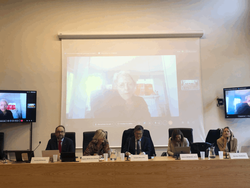
🌐suivre Marie-Anne Frison-Roche sur LinkedIn
🌐s'abonner à la Newsletter MAFR Regulation, Compliance, Law
🌐s'abonner à la Newsletter en vidéo MAFR Surplomb
____
► Référence complète : M.-A. Frison-Roche, "Traduire dans l'institution judiciaire l'articulation entre l'international et le systémique", in... Le contentieux systémique émergent, un contentieux international justifiant la création de juridictions spécialisées ? Université Jean Moulin - Lyon 3, 8 avril 2025,
____
Cette intervention intervient après l'intervention de synthèse du colloque.
____
🧮consulter le programme complet de cette manifestation
____
► Résumé de l'intervention :
________

April 5, 2025
Publications
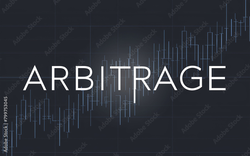
🌐follow Marie-Anne Frison-Roche sur LinkedIn
🌐subscribe to the Newsletter MAFR Regulation, Compliance, Law
🌐subscribe to the Video Newsletter MAFR Surplomb
____
 ► Full Reference: M.-A. Frison-Roche, Arbitration, a highly appropriate technique for deploying Compliance Law, in particular to satisfy the Vigilance Obligation, Working Paper, March 2025.
► Full Reference: M.-A. Frison-Roche, Arbitration, a highly appropriate technique for deploying Compliance Law, in particular to satisfy the Vigilance Obligation, Working Paper, March 2025.
____
🎤 This Working Paper was developed as a basis for the Overhang👁 video on ... April 2025 : click HERE
____
🎬🎬🎬In the collection of the Overhangs👁 It falls into the Notion category.
►Watch the complete collection of the Overhangs👁 : click HERE
____
► Summary of this Working Paper: If Arbitration has so far not developed much in Compliance Law, it is because this new branch of Law is not well known. Indeed, if it were simply a matter of 'conformity' with mandatory regulations, then Arbitration involving rights that are freely available to the parties and Compliance would be 2 worlds that must ignore each other.
But Compliance Law is defined quite differently. Its normativity lies in the Monumental Goals set by the political authorities, which oblige large companies, because these compagnies are in a position to do so, to contribute to achieving these Goals, namely the future preservation of the Systems (banking, digital, climate, energy, etc.) and human beings involved. While the Goal is constrained, the company is free to choose the means, as long as these means are credible. Arbitration is one of them. From the arbitration clause to the appropriate award.
One example is the Duty of Vigilance, the cutting edge of Compliance. In order to effectively find solutions in the value chain that the company governs, Arbitration is a suitable means of achieving the Monumental Goals of environmental protection and human rights, under the control of the Judge.
____
🔓read the developments below⤵️